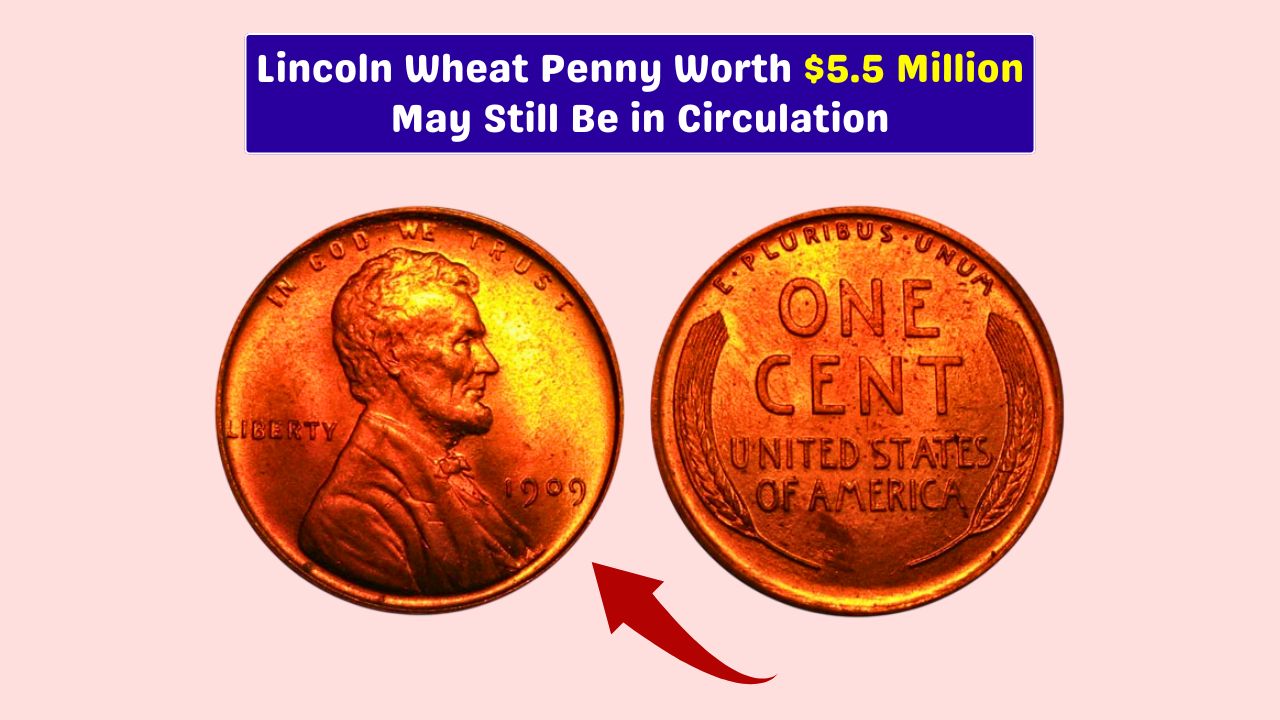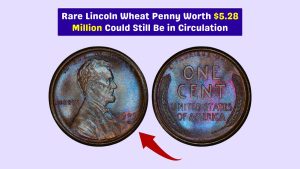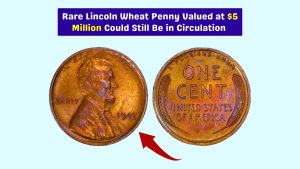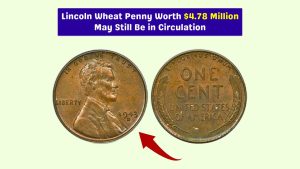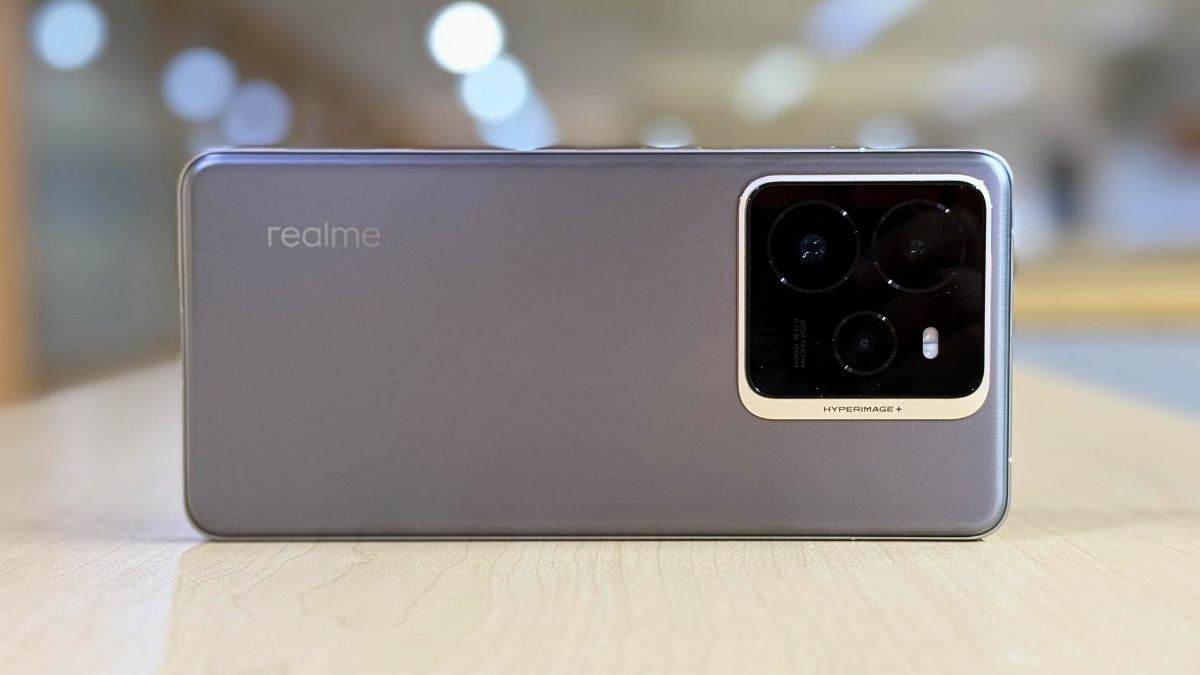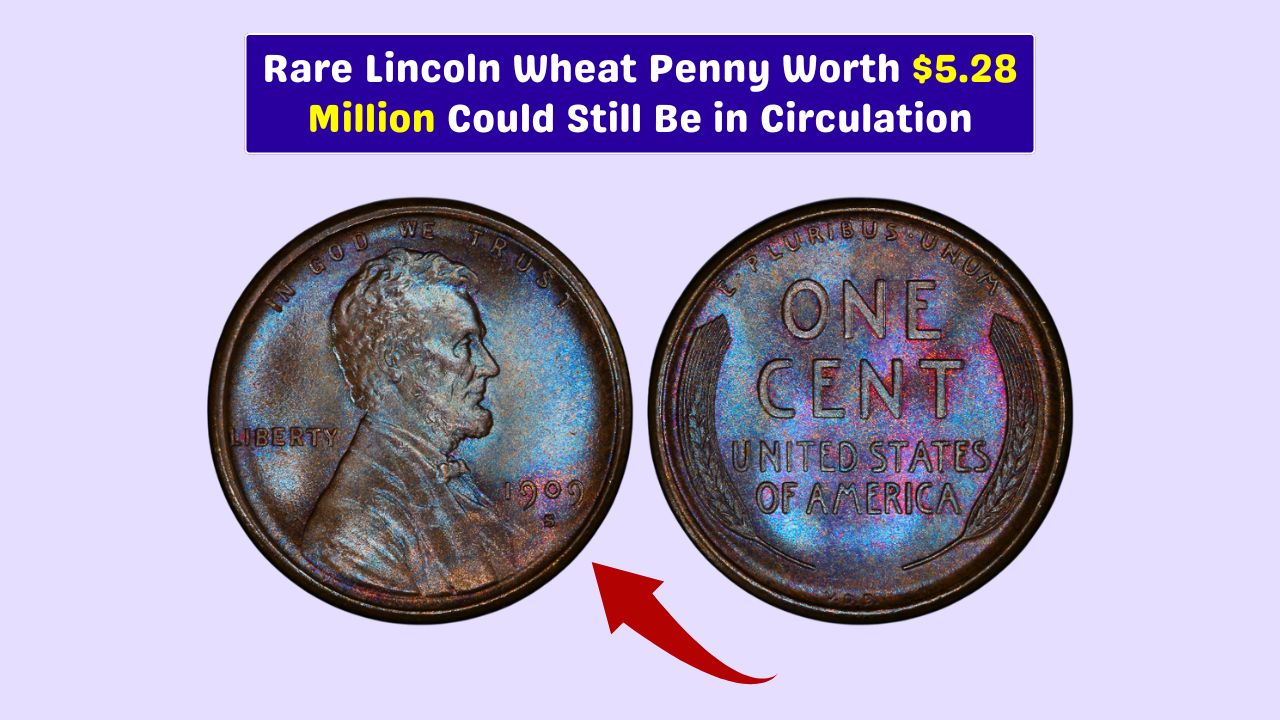Finding treasure in your pocket might sound like a dream, but it could actually happen if you come across a rare Lincoln Wheat Penny. This small copper coin, first minted in 1909, is now worth up to $5,500,000.
Even more exciting is the possibility that one of these valuable coins is still sitting quietly in everyday circulation. Let’s look at why it’s so valuable and how you can find one.
History
The Lincoln Wheat Penny made its debut in 1909 to mark the 100th birthday of President Abraham Lincoln. It was a big deal — the first American coin to feature a real person.
Victor D. Brenner designed it, showing Lincoln’s profile on the front and two wheat stalks on the back, symbolizing prosperity and national growth.
This classic design lasted until 1958 when it was replaced by the Lincoln Memorial. Because of this change, the original wheat-back design is now a collector’s item, and certain rare versions have become incredibly valuable.
Value
Most Lincoln Wheat Pennies are worth just a few cents. Some, depending on their year, condition, and mint mark, can fetch a few dollars. But one coin towers above the rest: the 1943 copper penny.
During World War II, copper was reserved for war equipment. The U.S. Mint switched penny production to zinc-coated steel in 1943.
But a few copper blanks from 1942 accidentally ended up in the machines, resulting in a small batch of 1943 copper pennies — only about 40 are known to exist.
One of these ultra-rare coins was valued at $5,500,000. Its worth comes from its rarity, its accidental creation, and the fierce competition among coin collectors to own a piece of numismatic history.
Circulation
Here’s the wild part — some of these rare pennies may still be out there. Because they look like regular pennies, and because most people don’t check their change carefully, these valuable coins can stay in circulation for decades.
One could be sitting in a coin jar, tucked in an old wallet, or hiding between couch cushions.
That’s why experts recommend checking your spare change. A single glance could change your financial future.
Clues
So how do you spot a $5.5 million penny? Here’s what to look for:
| Feature | What to Look For |
|---|---|
| Year | 1943 — the most famous copper error year |
| Color | Copper brown (not silver-colored steel) |
| Magnet Test | Copper pennies won’t stick to a magnet |
| Back Design | Two wheat ears and the words “One Cent” |
| Condition | The better the shape, the higher the value |
Don’t clean your coin — it can ruin its value. If you think you’ve found something special, take it to a professional for grading and authentication.
Treasure
The story of the $5,500,000 Lincoln Wheat Penny reminds us that treasure doesn’t always come in gold bars or pirate maps. Sometimes, it’s right there in your everyday change.
Keep your eyes open, check your pennies, and who knows — you might be holding the smallest fortune in the world in the palm of your hand.
FAQs
Why is the 1943 copper penny rare?
It was made by mistake during WWII when copper was restricted.
How can I test a 1943 penny?
Use a magnet. Steel sticks, copper doesn’t.
What does the wheat design mean?
It symbolizes prosperity and was used until 1958.
Where might I find a rare penny?
In old jars, wallets, change drawers, or even in circulation.
Should I clean an old coin?
No. Cleaning can damage the coin and reduce its value.
